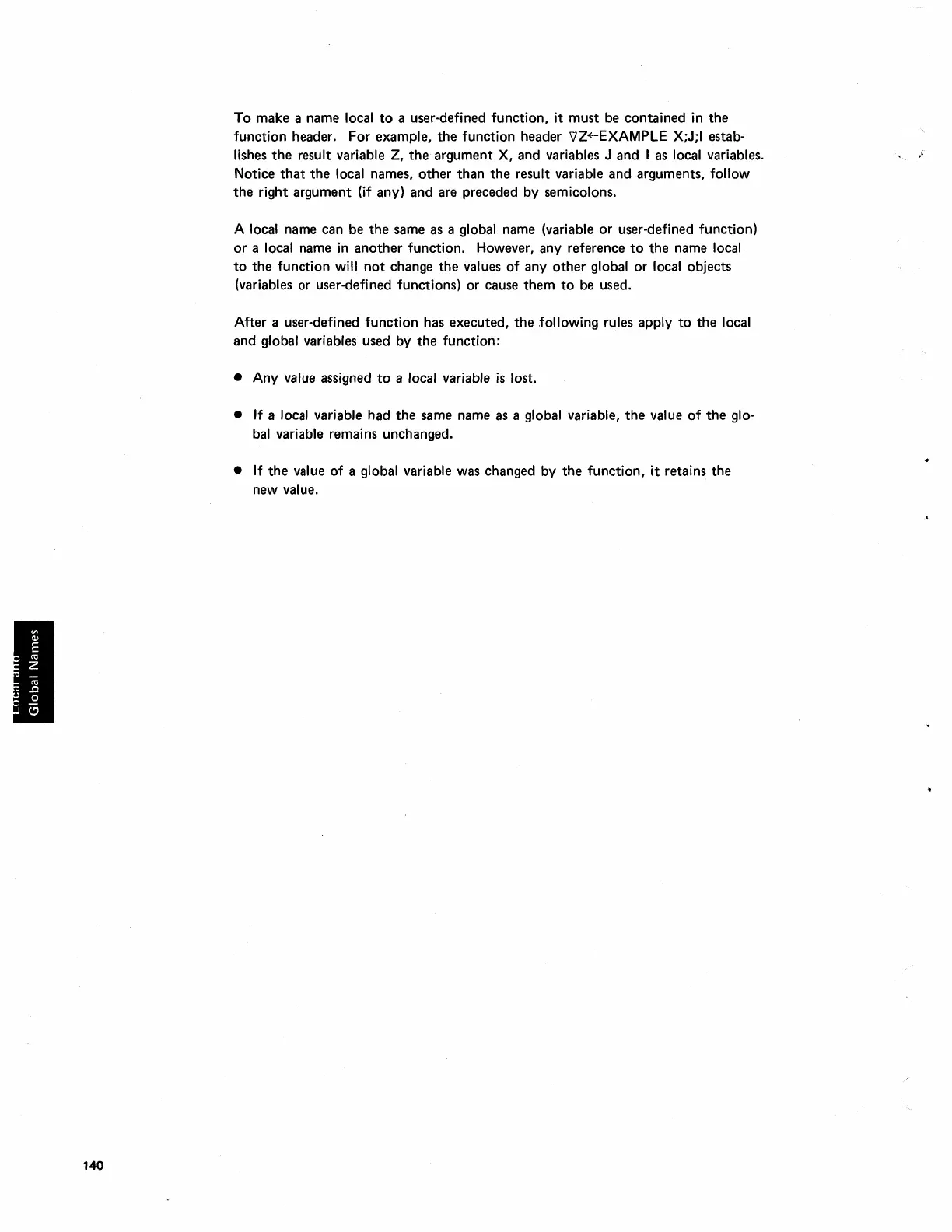140
To
make a name local
to
a user-defined function,
it
must
be
contained in the
function
header. For example, the function header VZ+-EXAMPLE X;J;I estab-
lishes the result variable Z, the argument X,
and
variables J and I
as
local variables.
Notice
that
the local
names,
other than the result variable and arguments,
follow
the right argument
(if
any) and
are
preceded by semicolons.
A local
name
can
be
the
same
as
a global
name
(variable or user-defined function)
or
a local
name
in another function. However, any reference
to
the
name
local
to
the function
will
not
change
the
values
of
any other global or local objects
(variables or user-defined functions) or
cause
them
to
be
used.
After
a user-defined
function
has
executed, the .following rules apply
to
the local
and global variables
used
by the function:
•
Any
value
assigned
to
a local variable
is
lost.
•
If
a local variable had the
same
name
as
a global variable, the value
of
the glo-
bal
variable remains unchanged.
•
If
the
value
of
a global variable
was
changed by the function,
it
retains the
new value.
